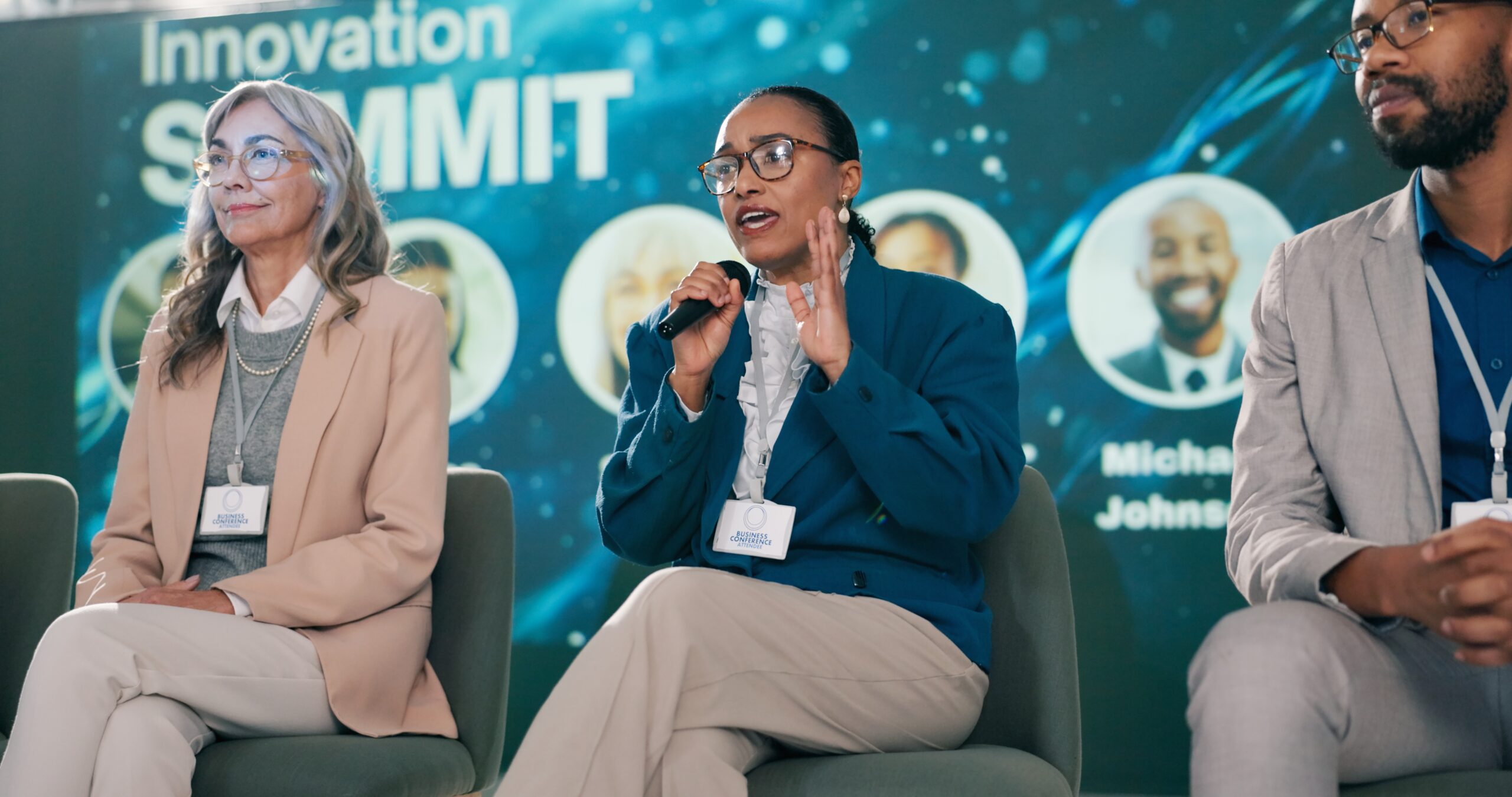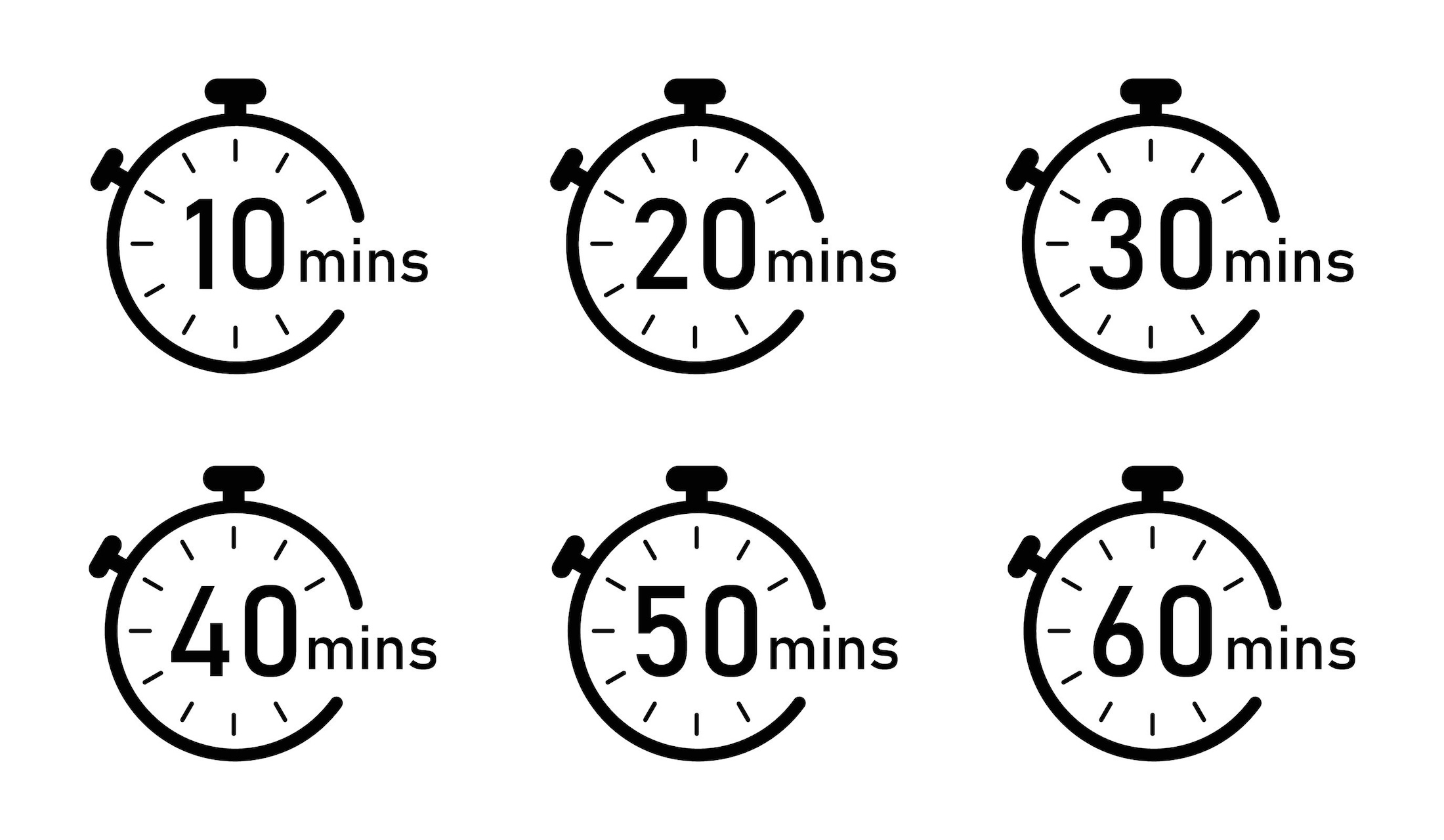The panel discussion is an excellent tool with which to get your message across. A conversation among experts — guided by a moderator and followed by a Q&A — is a great way to engage audiences.
The best panel discussions appear relaxed and spontaneous. And yet, paradoxically, creating such loose-looking discussions requires meticulous preparation and attention to detail.
In other words, a panel discussion may look like improv, but is in fact as scripted and rehearsed as Hamilton.
When preparing your next panel discussion, here are 7 golden rules for success:
1/ The devil is in the details
Minor details end up creating major problems—e.g. forgetting to check battery levels before using hand-held microphones. Take time to review the technical set-up, especially mics, video, slides, etc. Insist on accessing the stage well in advance, to have enough time for a run-through. Have an AV technician on hand to troubleshoot.
Any panel discussion also conveys a subliminal message: “We are professionals who know how to do things right.” Getting that subliminal message across credibly requires flawless execution—or at least, avoiding unforced errors.
2/ You can never be over-prepared
Schedule a conference or video call between the moderator and all panelists to run through questions and gauge the group’s conversational dynamic. If the moderator and panelists don’t get an early opportunity to establish a rapport and mutual understanding, their onstage performance will suffer as a result.
A panel means dialogue, not a succession of monologues. Each speaker should make their point quickly, respect their time allocation, and react to other panelists’ comments. Interactions create the appearance of an actual conversation.
3/ Use a professional moderator
The ultimate success of any panel discussion rests with the moderator, who should ideally be a neutral 3rd party. Avoid handing that role to a company insider. An outside moderator—e.g. a journalist or an experienced communications professional—has the intellectual and emotional distance to keep the conversation moving forward, and within time limits.
An outside moderator can ask candid questions that might otherwise sound naive coming from an insider. Similarly, the outsider can raise touchy questions that might be too uncomfortable for an insider. With no skin in the game, the outside moderator is best positioned to advocate for the audience’s interests.
4/ Moderators are not panelists
By definition, the moderator is in service to others, to help panelists stay on message and on time. However, if the moderator is somehow also granted a speaking role, then the panel risks spiraling out of control—after all, who will moderate the moderator?
5/ Be realistic about timing
On average, humans speak at a rate of 130 words per minute. This is the key figure to bear in mind when scripting a panel discussion. Rather than killing spontaneity, a script actually helps panelists perform better, by allowing them to retro-fit their messages to their precise time allocation. Well-prepared panelists always look more relaxed, and therefore more professional.
On stage, a time-keeping device is a must-have. Ideally, a countdown LED screen should be visible only to panelists, while also serving to flash short time-keeping messages to the moderator (e.g. “Start wrapping it up” or “We can run longer by 5 mn. if needed”).
6/ Shorten introductions & questions
Remember to KISS—Keep It Short & Simple. Bad moderators will often waste precious time on lengthy introductions. Beyond stating name, company and job title—to let the audience know who’s who—the moderator should take a back seat and let panelists speak for themselves, prompting them with short sharp questions and follow-ups. No one wants to hear the moderator ask a question that runs longer than the answer.
7/ Allow time for audience Q&A
Because it is live and unscripted, audience Q&A is often the most exciting moment of any on-stage event—everyone is eager to observe how speakers will hold their own after losing the ‘safety net’ of their prepared talking points. Always aim to move to Q&A earlier in the panel discussion, rather than risk running out of time for audience questions at the end. For an event to be truly successful, it is essential that the audience have a chance to participate in the on-stage discussion.
To sum up, when planning an event, if you are hesitating between stand-alone speeches or moderated panel discussions, you can never go wrong with the latter. Just follow our 7 golden rules to make your presentations even more memorable.





